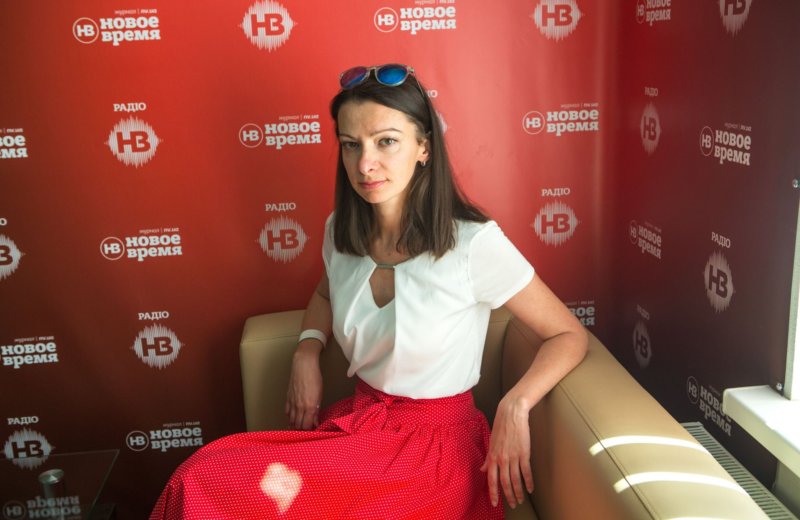A court has given the Prosecutor General’s Office access to the phone records of Kristina Berdynskykh, a journalist at the Novoye Vremya magazine, Prosecutor General Yuriy Lutsenko’s spokeswoman Larysa Sargan said on Sept. 5.
Berdynskykh became the second Ukrainian journalist whose cell phone data was disclosed to authorities this week.
Sargan said that the court warrant against Berdynskykh was “analogous” to the one issued by Kyiv’s Pechersk District Court on Aug. 27 to give the Prosecutor General’s Office access to records of investigative journalist Natalie Sedletska’s cell phone data for the past 17 months.
Sedletska is the chief editor and host of Radio Free Europe/Radio Liberty’s Schemes investigative television show.
The decisions against Sedletska and Berdynskykh are part of a case against Artem Sytnyk, head of the National Anti-Corruption Bureau of Ukraine or NABU, where the two journalists are witnesses. Sytnyk is accused of divulging a state secret by leaking information to journalists.
The secret, which was allegedly leaked by Sytnyk at a meeting with journalists in May 2017, concerns an unlawful enrichment case against a top prosecutor, Kostyantyn Kulik.
Kulik was charged with unlawful enrichment of Hr 2 million in 2016, but has not been suspended or fired since then.
Anti-corruption activists see the case as part of the conflict between the authorities and the politically independent NABU, which has taken over the investigation of top-level graft cases from the Prosecutor General’s Office, the head of which is appointed by the president.
Meanwhile, Sytnyk said on Sept. 5 that the NABU’s leadership could be arrested in the run-up to the 2019 presidential elections.
“This decision (on access to Sedletska’s conversations) is excessive, blatantly violates international standards and does not comply with Ukraine’s obligations to defend the freedom of speech,” RFE/RL spokeswoman Joanna Levison said, cited in a Sept. 4 statement by RFE/RL.
Popov said that the court had given the investigators much more information than necessary – not just the phone calls log in May 2017, when the meeting between Sytnyk and journalists allegedly took place, but records of calls placed over the past 17 months, as well as her texts and location records.
Commenting on the decision on Sedletska, Andriy Lysenko, a spokesman for the Prosecutor General’s Office, wrote on Facebook on Sept. 4 that the move was necessary to identify the time, date and location of the alleged information leak.
He claimed that this date could be somewhere between the time when the wiretapping of Kulik’s common-law wife Iryna Nimets ended and when the Sytnyk case was opened.
Lysenko said that the prosecutors had not gotten access to the content of conversations and text messages and argued that the court warrant did not constitute interference in Sedletska’s professional activities.
However, it is not clear how the period was justified if the investigators identified the time of Sytnyk’s meeting with journalists as May 2017. Critics of the prosecutor’s office argued that prosecutors could use the court warrants as an excuse for identifying the sources of Sedletska and Berdynskykh.



